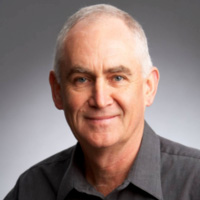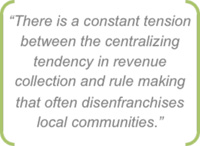

Richard Davison
Richard Davison grew up in a small rural community in North Canterbury. His first full-time job was with the Rural Bank, followed by two years as a VSA volunteer in the Solomon Islands. He then farmed for 30 years in the Amuri district, North Canterbury, and he is also a registered valuer. Richard is a former Nuffield Scholar, and has held various elected and appointed positions in Federated Farmers, Ravensdown, Landcorp, and AgResearch. He is currently a Hurunui district councillor, and chair of Amuri Health Care Ltd and the Toraja Rural Development Trust, which provides help to farming families in Toraja, Indonesia.
What three issues facing youth today do you feel particularly strongly about?
- Education – the relevance and integrity of the education pathway. This generation has more options and choice, but this is a mixed blessing as there needs to be a clear focus on educating young minds to cope with a rapidly changing and challenging workplace and society. The traditional career opportunities are expanded into a multitude of choices which can include a bewildering set of options. A robust grounding in basic skills and thought discipline is still essential.
- Financial security – the world is in a fragile period with very few certainties and with the likelihood of an extended period of little if any economic growth. This is combined with the toxic mixture of state and personal debt and overpriced property to produce a challenge for young couples to establish secure careers and purchase or rent affordable housing. This is very unsettling and is already resulting in many couples delaying childbirth and requiring two incomes to achieve home ownership.
- Gender – a very positive development in recent years is the steady improvement in the relative equality of opportunity for both sexes. We have some way to go and various challenges to overcome but the generation entering their thirties are secure in the knowledge that both male and female have the right and opportunity to do almost anything. This is a really exciting change.
What changes would you like to make to the way New Zealand is governed?
Local decision-making - there is a constant tension between the centralising tendency in revenue collection and rule-making that often disenfranchises local communities. This results in a disengagement by people who feel that they have little or no real influence over decisions that are made by remote organisations and people who have little understanding of local issues. This is especially true in many rural areas, which can often have costs and rules imposed by the majority urban-based governance bodies.
What actions, if any, are you planning to contribute to the constitutional review?
I do not have any formal plans to contribute to the review, but need to think about that.
